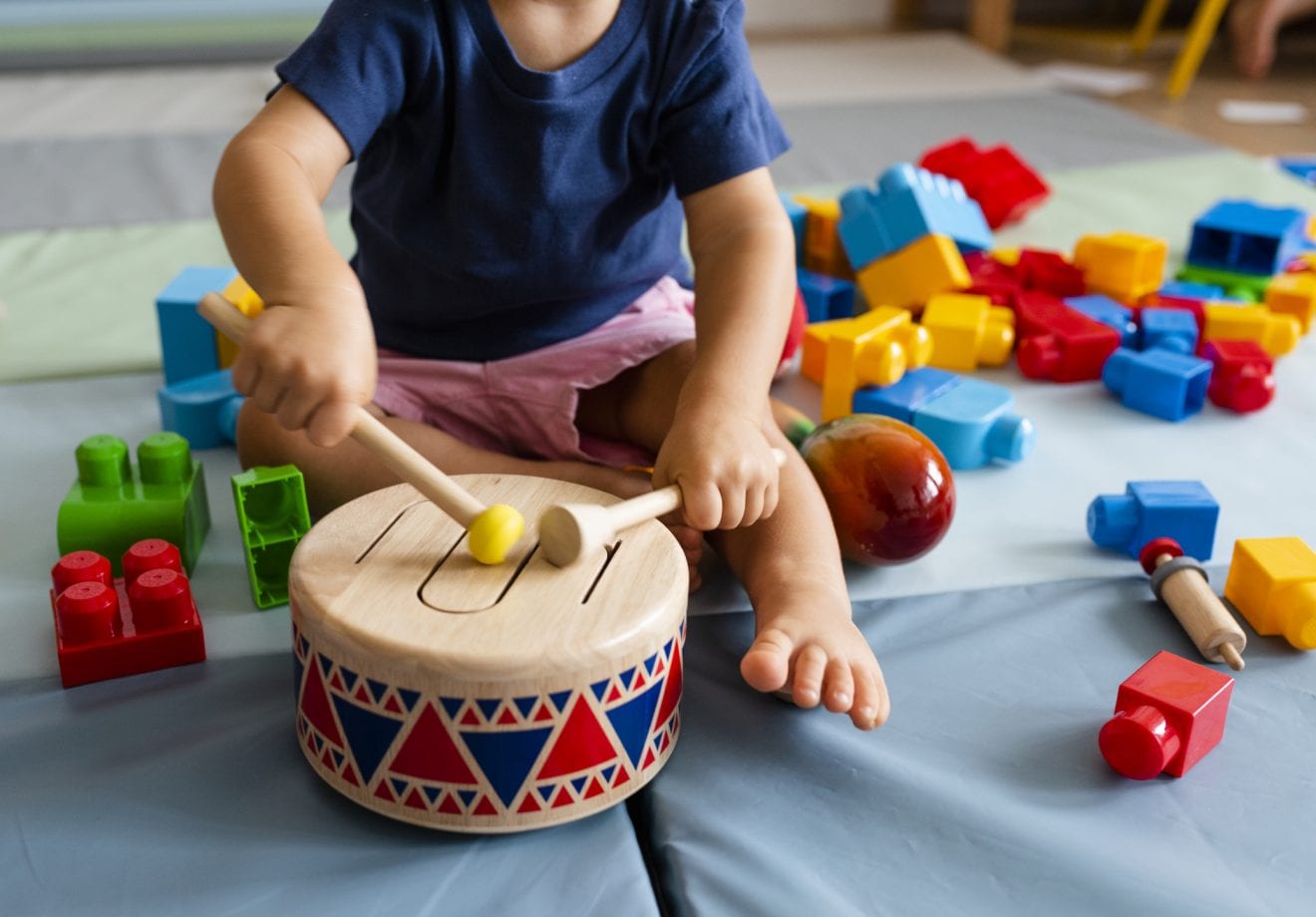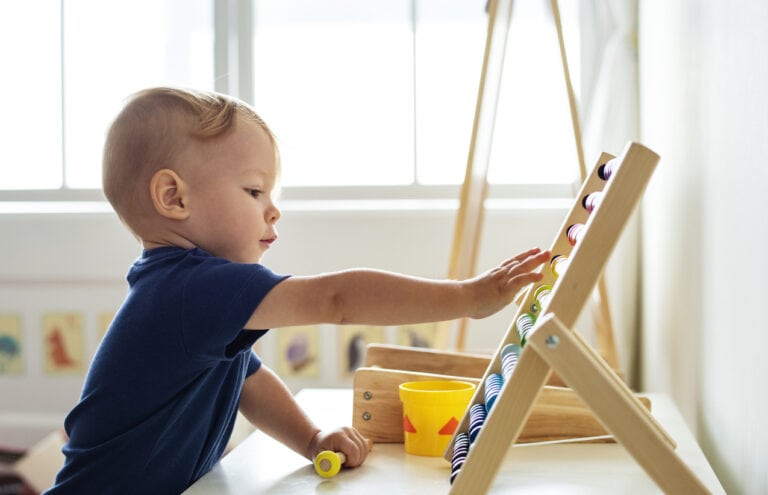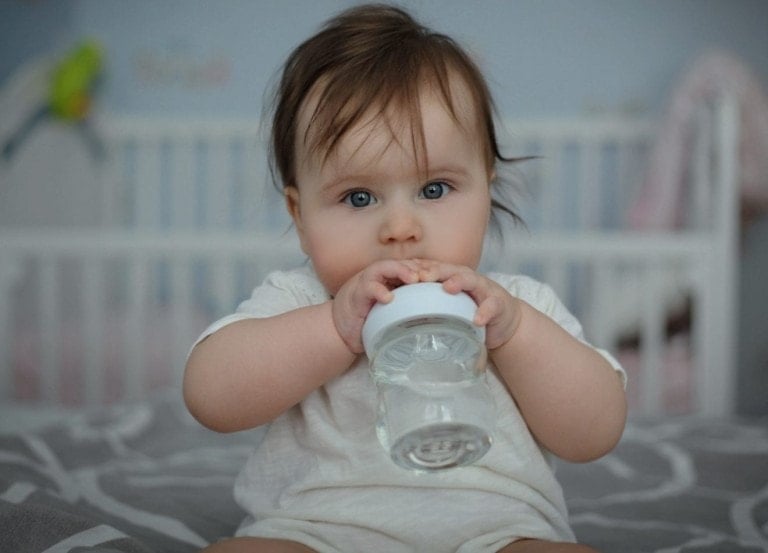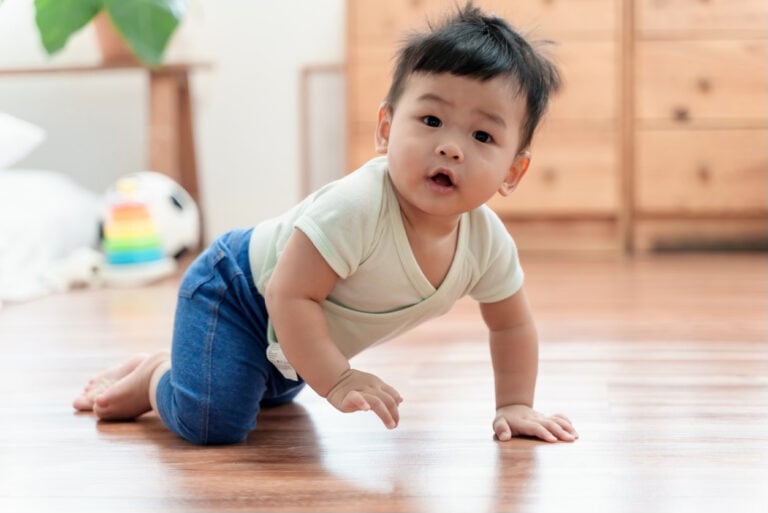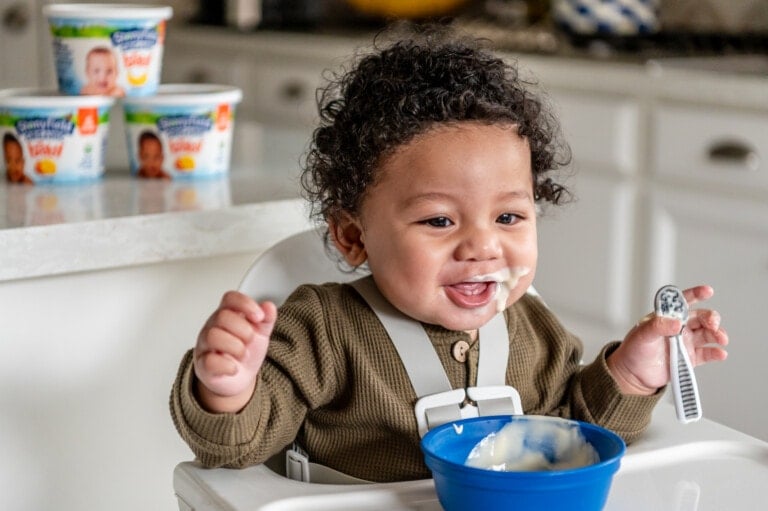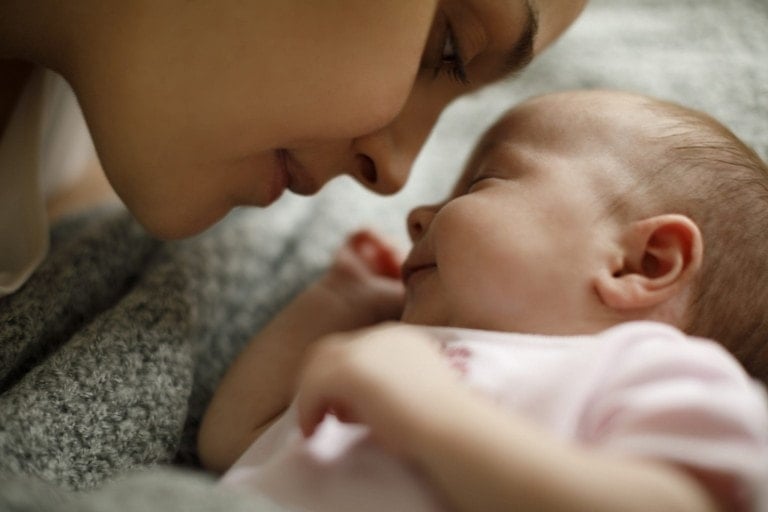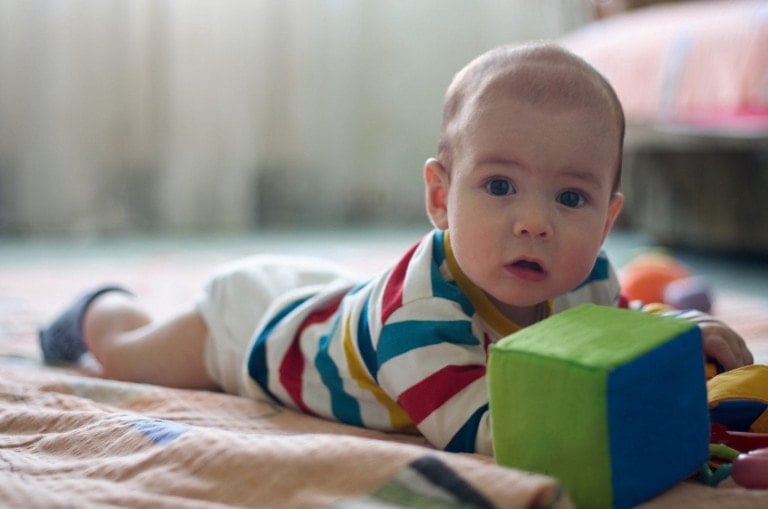Parents, teachers, and society, in general, believe a child is intellectually gifted when a standardized assessment says they are. But those standard assessments often come when children are close to school age. Are we missing an opportunity to provide additional stimulation to gifted children earlier?
We know the critical window for child development is before age five.1,5,6 It might help to identify giftedness earlier so gifted children get adequate stimulation to meet their needs. Many parents wonder at some point if their baby or toddler is gifted. This question can be difficult to answer because every child develops at a different rate with varying skills and abilities.
Is Your Baby Gifted?
Several researchers have studied gifted babies and toddlers and found some predictive characteristics of gifted children.2 NOTE: Just because a child demonstrates common gifted features does not mean they will be identified as gifted. On the other hand, children can be identified as gifted even if they do not have all characteristics. The following are common signs of gifted babies and toddlers:
- A heightened level of alertness
- Need for constant stimulation while awake and alert
- Less need for sleep than typically recommended
- Greater speech ability; able to mimic sounds earlier than typical
- Greater sensitivity to sounds, smells, textures, and tastes
- Strong reaction to unpleasant sensations; gifted children are often hypersensitive.
- Excess energy and in constant motion
- May start talking late but speak in complete sentences when they do start
- Reach physical milestones (such as crawling) earlier than average
Gifted children may not have all these traits, but they will likely have more than two.
Gifted Babies Need Greater Stimulation
Babies and toddlers who are gifted typically also need greater stimulation. When gifted babies are not provided continuously with something interesting and novel to see, listen to, or touch, they may become bored and fussy. Some studies have found that gifted babies and toddlers typically become bored with familiar things faster. They’re always craving new and different stimulation.3
If your baby is no longer being calmed by the song used to comfort her, and you have to play a new and unfamiliar song to make her happy, this is a sign that she craves novelty. You may also see this if your child quickly becomes disinterested in new toys. This can be a sign that your child is gifted because she is craving new and interesting stimulation.
I Think My Baby is Gifted. Now What?
So, what should you do if you suspect your child is gifted? You don’t need to change anything. You should continue to provide your child with the same enriching environment of experiences to challenge all of their senses. Continue talking to your gifted child, asking questions, reading to him, singing to him, and encouraging him to talk back to you. There is no need to do anything differently because all children must get a wide variety of experiences.
It might be helpful to know that these characteristics are signs of giftedness and intelligence so you can react without frustration. It may be challenging to keep finding new and interesting stimulation for your gifted child. But knowing they are craving interesting enrichment versus just being irritable can help you understand how to support them.
Also, it is important to remember that the way we interact with children can build their intelligence. Some studies show that the type of questions we ask children can challenge them and make them smarter.4 Think about how you interact with your child. How can you make it more interesting to add to his vocabulary and critical thinking? All children need positive and interesting interactions with mom and dad. It helps to build their vocabulary, academic skills, and social skills.
Your Child Doesn’t Have to Be “Gifted” to Have a Gift.
We all think our children are “gifted” at some point. But it is important to remember that every child has their own gifts to share, even if they aren’t identified as intellectually gifted. Help your child find their gifts and support them so they can flourish. Maybe they are extraordinarily kind, good at basketball, a great singer, dancer, or piano player. Perhaps they are amazing with animals or especially great at telling stories. Help your child find their particular gift or passion and encourage them to cultivate it.













